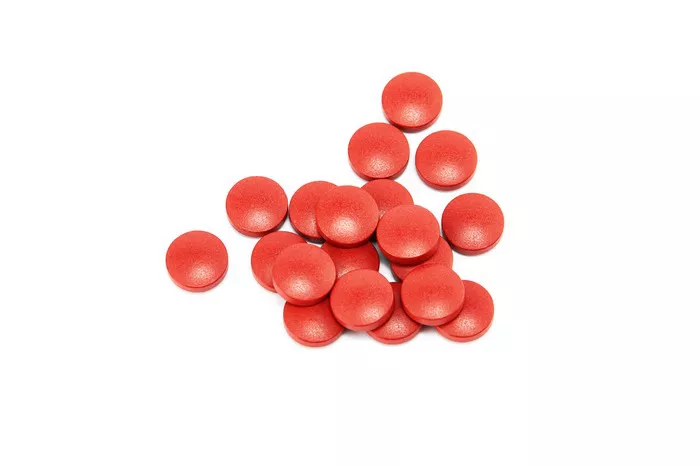Blood tests are an essential part of modern medicine. They provide valuable information about a person’s health status, including their blood sugar levels, cholesterol levels, kidney function, liver function, and more. However, there are certain factors that can affect the results of a blood test, including the use of vitamins and supplements. In this article, we will discuss whether or not you should take vitamins before a blood test and how they can affect the results.
Should I Take Vitamins Before a Blood Test?
The answer to this question depends on the type of vitamins you are taking and the reason for the blood test. In general, it is recommended that you avoid taking any vitamins or supplements for at least 24 hours before a blood test, unless otherwise instructed by your healthcare provider. This is because certain vitamins and supplements can affect the results of the test, making it difficult to interpret the results accurately.
Vitamins That Can Affect Blood Test Results:
Vitamin C is a powerful antioxidant that is often taken to boost the immune system and support overall health. However, high doses of vitamin C can interfere with certain blood tests, including blood glucose tests and cholesterol tests. This is because vitamin C can affect the way glucose and cholesterol are metabolized in the body, leading to inaccurate test results.
Vitamin B12:
Vitamin B12 is an essential nutrient that is important for nerve function, red blood cell production, and DNA synthesis. However, high levels of vitamin B12 can interfere with certain blood tests, including tests for folate and iron levels. This is because vitamin B12 can mask the symptoms of a deficiency in these nutrients, leading to inaccurate test results.
Vitamin E:
Vitamin E is a powerful antioxidant that is often taken to support heart health and reduce inflammation. However, high doses of vitamin E can interfere with certain blood tests, including tests for blood clotting and bleeding disorders. This is because vitamin E can affect the way blood clots, leading to inaccurate test results.
Vitamin K:
Vitamin K is an essential nutrient that is important for blood clotting and bone health. However, high doses of vitamin K can interfere with certain blood tests, including tests for blood clotting disorders and liver function. This is because vitamin K can affect the way blood clots and the way the liver processes certain substances, leading to inaccurate test results.
Exceptions to the Rule:
There are certain situations where taking vitamins before a blood test may be necessary, even if they can affect the results. For example, if you are taking a vitamin or supplement for a specific health condition, your healthcare provider may recommend that you continue taking it before the test. In this case, your healthcare provider will be aware of the potential for the vitamin or supplement to affect the test results and will take this into account when interpreting the results.
Additionally, if you are taking a medication that can affect the results of a blood test, your healthcare provider may recommend that you take a vitamin or supplement to counteract the effects of the medication. In this case, your healthcare provider will monitor your test results closely to ensure that they are accurate.
Tips for Preparing for a Blood Test:
If you are scheduled for a blood test, there are several steps you can take to ensure that the results are accurate:
Follow your healthcare provider’s instructions: Your healthcare provider will provide you with specific instructions on how to prepare for the test. Make sure you follow these instructions carefully to ensure that the results are accurate.
Avoid eating and drinking: In general, it is recommended that you fast for at least 8 hours before a blood test. This means that you should avoid eating or drinking anything except water during this time.
Avoid strenuous exercise: Strenuous exercise can affect the results of certain blood tests, so it is recommended that you avoid exercise for at least 24 hours before the test.
Avoid smoking: Smoking can also affect the results of certain blood tests, so it is recommended that you avoid smoking for at least 24 hours before the test.
Be honest with your healthcare provider: If you are taking any medications, vitamins, or supplements, make sure you inform your healthcare provider before the test. This will help ensure that the results are accurate and that any potential issues are addressed.
Conclusion:
In conclusion, whether or not you should take vitamins before a blood test depends on the type of vitamins you are taking and the reason for the test. In general, it is recommended that you avoid taking any vitamins or supplements for at least 24 hours before a blood test, unless otherwise instructed by your healthcare provider. This is because certain vitamins and supplements can affect the results of the test, making it difficult to interpret the results accurately. However, there are certain situations where taking vitamins before a blood test may be necessary, and your healthcare provider will be able to advise you on the best course of action. By following your healthcare provider’s instructions and taking the necessary precautions, you can ensure that your blood test results are accurate and reliable.
[inline_related_posts title=”You Might Be Interested In” title_align=”left” style=”list” number=”6″ align=”none” ids=”4814,4810,4806″ by=”categories” orderby=”rand” order=”DESC” hide_thumb=”no” thumb_right=”no” views=”no” date=”yes” grid_columns=”2″ post_type=”” tax=””]
































